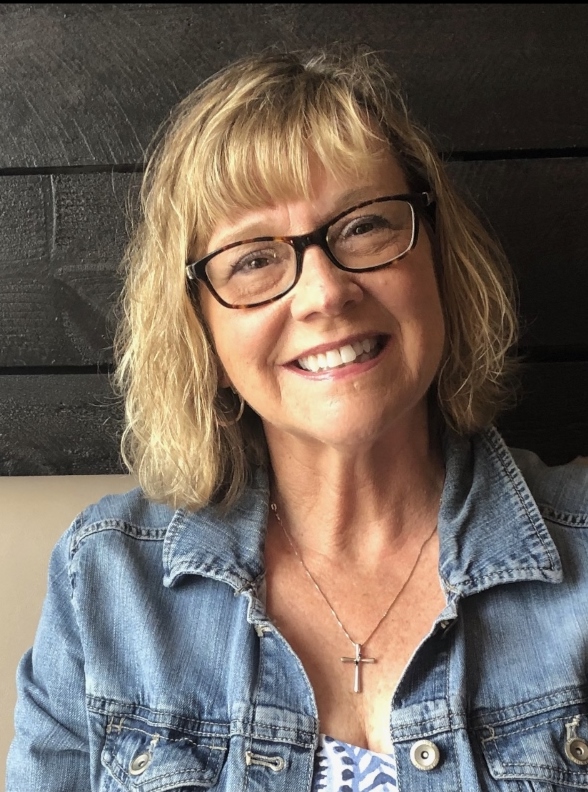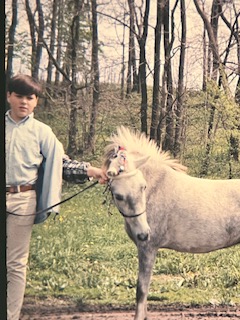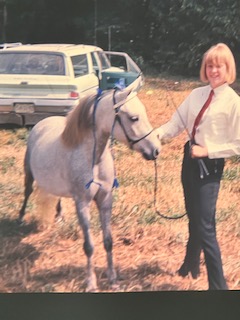Blog
Futility, 4-H And Lessons Learned From Horses




My life is full of futile endeavors; cleaning litter boxes, vacuuming, washing clothes, weeding; But there is none so pointless as giving my horse,Wrangler, a bath. He is a big, dusky-brown wooly mammoth looking thing that takes longer to shed out his winter coat due to a condition called Cushing’s Disease. He tends to gain weight and needs to wear a grazing muzzle to keep from overeating. (I am thinking that I might try one for myself.)
Anyway, today I went to the barn to give him a bath and try to wrest the superfluous hair that lingered on his back, flanks and underbelly. He was drenched in sweat as if he had beat Rich Strike in the Kentucky Derby. There were fans running in the barn, but he could not spare a moment’s worth of eating the new grass to cool down. I trudged out into the field to bring him in. I can only catch him with a treat. He reaches out his neck like an uncoiled snake and if I don’t present a treat in hand, he turns tail and takes off; not spoiled at all is he.
Back in the days when I still showed, I had the horse no one wants the day before an event; the dreaded gray mare. Duchess was an incredibly docile horse with a sweet temperament. She acted more like a gelding (for those of you who need more info, a gelding is a neutered male horse. They are usually not moody. Mares are moody.) She was the product of a real cow pony that came from out west bred to an enormous gray thoroughbred stallion. Duchess inherited her daddy’s color but her mama’s small, compact stature and athletic prowess. Besides jumping like a gazelle, my sawed-off gray mare loved to turn 360s in the field. I didn’t stay seated during her spin-offs, which, by the way, led to her nickname of “Dizzy.” She didn’t do it to dump me, even though she would take off at a dead run in the opposite direction. When she finished her flight, she would trot back and peer at me on the ground as if to say, “What happened to you?” Gotts love a horse that comes back for her rider.
She possessed only one really annoying behavior. The day before a show, I bathed her in Orvis soap, used bluing on her white mane and tail to induce the sparkle-shine and covered her entire body with a blanket and hood. I carefully fastened them together so the hood would not slip down when she went to eat her hay. I couldn’t do much more to keep her from any dirt, dust or droppings unless I used bubble wrap. Early the next morning after loading my gear and hooking up the trailer to the truck, I’d go to grab Duchess. Since she was going to be tied up in the trailer, I could remove her hood. Lo and behold, under the hood was a green stain. She had somehow managed to find the only pile of excrement in her stall, roll in it and grind it up under the hood I assumed was “poop stain” proof. Back out to the spigot and hose. Out came the Orvis and the scrub brush. If you know about grass stains, they are not easy to get out of clothes, even less so to remove from horse hair. I did my best but she carried with her a faint green stain shaped like a map of Tennessee around the jump course later in the day.
My inauguration into equine competitions began some sixty-two years ago this summer. I entered the Montgomery County 4-H Horse and Pony Show with a pony I borrowed from Mr. Verner Mount. Back then the show was held at the Athens Saddle Club, but eventually moved to the Ben-Hur Stables before the arena was built at the local fairgrounds. I was so thrilled to have a pony to show, I cried when I was awarded a fourth place ribbon. Bertha, Verner’s wife, thought I was upset I didn’t win. I remember saying, “I’m not crying because I’m sad. I’m crying because I’m happy.” I showed in 4-H for the next eight years and even graduated to Open Shows when Shetland ponies were in their heyday. My two best friends even showed with me; Dan Wills ( my husband) and Suzanne Stuart Sommer.
My grandmother once told someone she bought ponies to keep me away from boys. That didn’t happen by the way, but I have learned a lot from my equine friends over the years and I’m still learning.
* In junior high when a boy dumped me, I sat and cried in my pony, Misty’s, stall. She stopped munching her hay long enough to come over and hang her head against mine. Lesson: Boys may dump you, but a good pony will stay with you no matter what.
* When jumping a horse, always look up and toward the next obstacle: Lesson: It’s good to keep your eye on the goal.
* Horses may be massive, but they can feel a fly buzz before it lands. Lesson: Never underestimate the power of minor irritations.
* As a teenager, I often took shortcuts on task completion. I kept my ponies at a place owned by Jesse and Saralee Gobel out off of Highway 136. One night after working my ponies, I left in a rush. By then I was driving and probably had a date. When I made it into the house on Pike Street the phone was ringing.
“You forgot to turn off the barn lights,” Jess announced on the other end of the line. I waited a beat to see what he would say next. “You need to come back and turn them off.”
I was steamed. I mean, the man lived on the property, for crying out loud! But I respected him and didn’t dare challenge him in word or deed. I drove back out to the barn and turned off the lights. Lesson: If you turn it on, you turn it off. If you take it out, you put it back.
* Horses have three responses to fear: fight, flight or freeze. The freeze response is short-lived and mostly a jolting stop that cracks your bones. The fight happens when you do not have an understanding of how a horse’s mind works. Flight, however, is pretty much their go-to when something is amiss or shows up in their peripheral vision. Sometimes it could be an errant leaf or a tiny piece of paper. Even a log moved from where it was the day before is good for a snort and sideways scoot. Lesson: Be prepared and vigilant. One never knows when real danger is in our midst.
* When it is hot and muggy, I bathe Wrangler to help him stay cool. And, in no time, he drops and rolls. The dripping wet coat is now a blotchy mud jacket. I shrug my shoulders in defeat, but turns out he knows better than me. The mud pack he created is a natural barrier of defense to ward off bugs. Lesson: Don’t take offense when someone’s reaction produces a different response than what you had imagined. They may know what’s best for them. Helps to ease the futility of efforts, right?
Gwynn Wills is a former speech therapist, certified Amherst Writers and Artists workshop Affiliate and Leader and founder of The Calliope Writers Group. After growing up in Crawfordsville, her and her husband returned several years ago.
Top photo: The author posing with Duchess before a jumping class.
Middle photo: Dan Wills holding Misty at prep for 4-H Horse and Pony Show.
Bottom photo: Author ready to enter the show arena with Misty.
